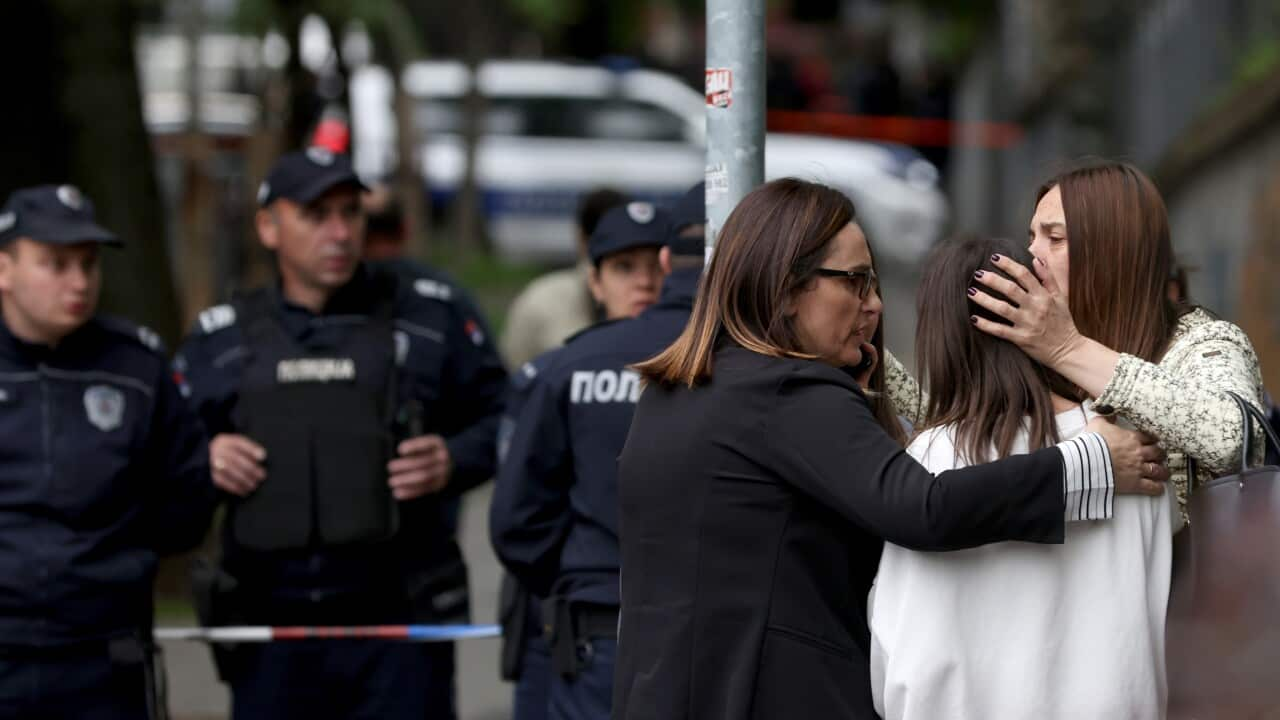A boy shot dead eight fellow pupils and a security guard in a Belgrade school on Wednesday in a pre-planned attack, officials said.
The tragedy has prompted Serbia's president to announce tougher curbs on gun ownership.
Using two handguns that belonged to his father, the 13-year-old fired first at the guard and three girls in a hallway and then shot his teacher and classmates during a history lesson, police said. The teacher and six pupils were hospitalised, some with life-threatening injuries.
Veselin Milic, head of Belgrade police, said the attacker had two guns and two petrol bombs and had planned everything carefully. "He even had ... names of children he wanted to kill and their classes," he told a press conference.
Gun ownership is widespread in Serbia, which has witnessed several mass shootings over the past decade, and President Aleksandar Vucic said checks would be stepped up.
As Serbia prepared for three days of national mourning, Mr Vucic announced a moratorium on new gun licences other than for hunting, revision of existing permits, and surveillance of shooting ranges and how civilians store their weapons.

Police officers blocked the streets surrounding the Vladislav Ribnikar school in Belgrade, Serbia during the shooting. Source: AP / Darko Vojinovic
"He was waiting for this day. He was at the shooting range with his father three times," Vucic said. The boy had asked for a transfer to another class where he had three friends, he said.
Interior Minister Bratislav Gasic said the suspect's father, had held the guns legally. Hundreds of thousands of weapons remain unaccounted for in Serbia after the Balkan wars of the 1990s.
Wednesday's shooting happened at Vladislav Ribnikar, an elementary school in Vracar, a central Belgrade district.
What are Serbia's gun laws like?
Gun laws are very strict in Serbia, but civilian gun ownership is also widespread.
According to the 2018 Small Arms Survey, Serbia globally ranked third with 39.1 firearms per 100 people, and more than 78,000 people have hunting licences.
The survey estimate includes many weapons held illegally since the wars and unrest of the 1990s, despite authorities having issued several amnesties for owners to hand in or register illicit guns.









